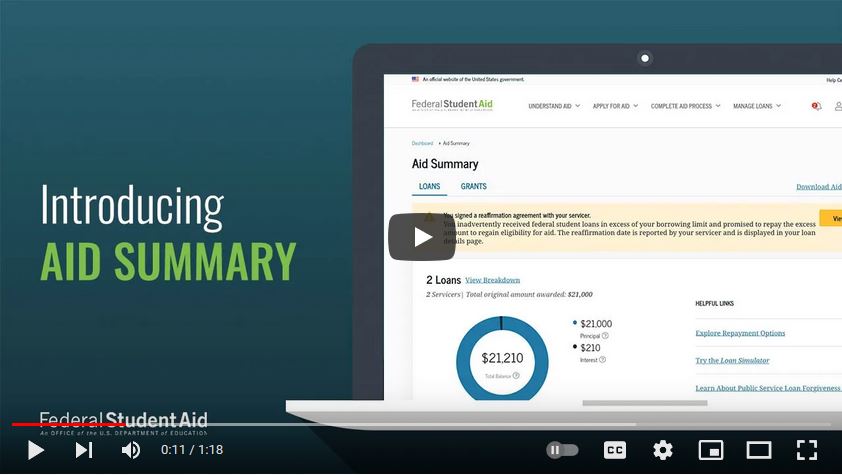Admitted to SVSU? To ensure you receive the optimal financial aid package, complete your 2025-26 Free Application for Federal Student Aid (FAFSA). We've compiled some helpful tips and recommendations to assist you in the successful submission of your FAFSA.
Financial Literacy
Understanding the basics of money management skills such as living within a budget, handling credit and debt, and planning for retirement will provide a solid financial foundation that can lead to a lifetime of financial success. Follow the guidelines below to better understand and control your financial success.
Webinars
Join us for LIVE and recorded webinars covering topics related to FAFSA, scholarships, financial aid, etc.
Video Resource Library
Video library of FAFSA videos offered in short online modules that support parents/students in completing each step of the FAFSA process.
The first step on the path to financial success is accepting accountability and responsibility. Understand that you are the one in control of your financial future and that every decision or choice you make can have a significant impact.
Step two on the path to financial success involves planning. It is impossible to effectively manage your finances if you don’t know how much money you have available to spend or how you want to budget the money you have. You need to create a road map by defining your financial goals. Establishing a budget and sticking to it is not easy, but it is the best way to ensure that you are in control of your financial future. Think of your budget as a “spending plan.” It is a way to be aware of how much money you have, where it needs to go, and how much, if any, is left over.
Types of Federal Student Aid
Not having a budget is like going on a trip without a roadmap. Just like needing to know where you are going, you need financial goals and a step-by-step plan on how to achieve them. For detailed help on developing a spending plan, visit the Federal Student Aid site.
Budgeting
At some point, you may need to borrow money (take out a loan). It is imperative that you borrow smart if you want to maintain your financial stability.
Responsible Borrowing
Credit cards are designed for people with income. They are a convenience but can test your self-control and you must strive to only use them if you plan on paying the balance in full at the end of each month. When selecting a credit card, make certain you have selected one with the most affordable options and no hidden costs.
Review & Understand Your Credit Report
A credit is a collection of information about you and your credit history and will have a significant impact on your financial future.
Know When to Ask for Help
The final step on the path to financial success is knowing when to request assistance. These warning signs will indicate financial problems:
- Are you living paycheck to paycheck with no money going into savings?
- Are you alternating which bills to pay each month, leaving some unpaid?
- Are your payments often late?
- Are you using one credit card to make the payments on another?
- Do you have creditors calling you?
- Are you being denied credit?
Financial Awareness Counseling provides tools and information to help you understand your financial aid and help you manage your finances.
Repayment Estimator can get you an early look at which plans you may be eligible for and see estimates for how much you would pay monthly and overall for your Federal Student Loans.
Budget Worksheets can help you understand, monitor and utilize your finances wisely.
CONTACT US.
Scholarships & Financial Aid
Wickes Hall 141
cfsc@svsu.edu
(989) 964-4900
CFSC
Wickes Hall 131A
cfsc@svsu.edu
(989) 964-4900
Registrar
Wickes Hall 151
registrar@svsu.edu
(989) 964-4085



